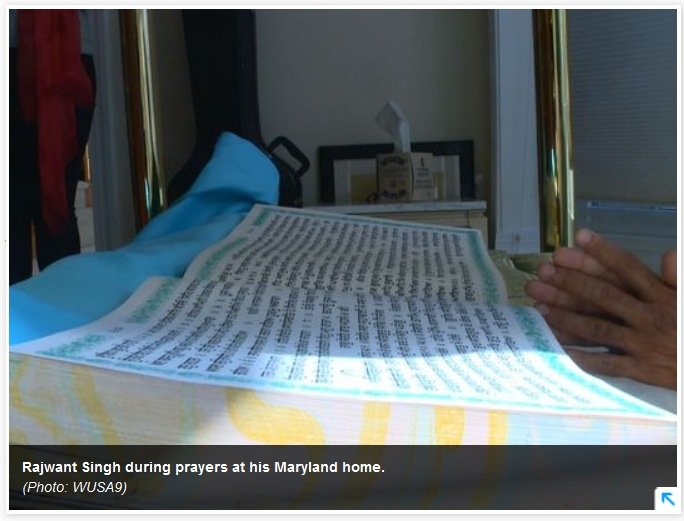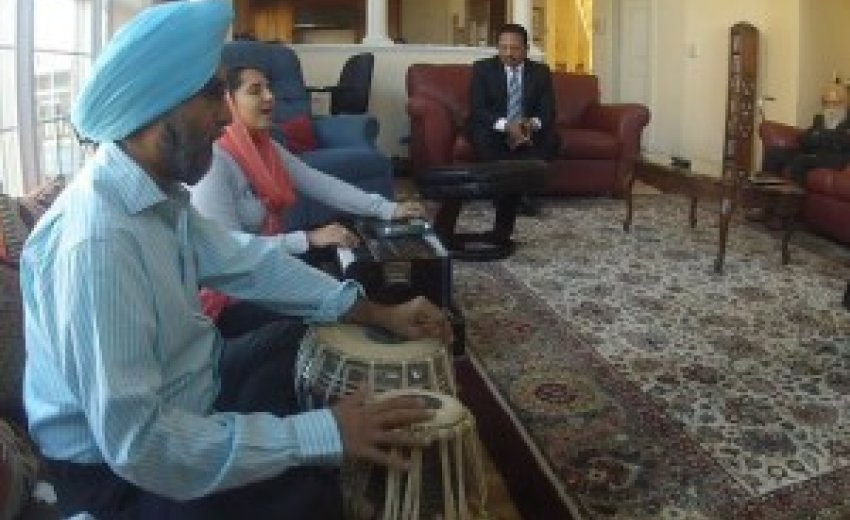The Sikh faith dates back almost 500 years in India. WUSA
 February 15, 2016:POTOMAC, Md. (WUSA9)--On August 5, 2012 there was a massacre at the Sikh Temple in Oak Creek Wisconsin. Forty-year-old Wade Michael Page shot and killed six worshipers. He wounded four others including a police officer who responded to the carnage. While wounded Page, a self proclaimed white supremacist, took his own life with a bullet to the head.
February 15, 2016:POTOMAC, Md. (WUSA9)--On August 5, 2012 there was a massacre at the Sikh Temple in Oak Creek Wisconsin. Forty-year-old Wade Michael Page shot and killed six worshipers. He wounded four others including a police officer who responded to the carnage. While wounded Page, a self proclaimed white supremacist, took his own life with a bullet to the head.
"It really devastated the community throughout the United States. Children and adults, all were fearful that they would be the next target," says Rajwant Singh, a Sikh who lives in Potomac, Maryland.
It remains the most violent attack on a Sikh community that is all too familiar to intolerance in the United States.
"A lot of people mistake us, or identify us, as close to Bin Laden or the Taliban or Isis. So that is why Sikhs are targeted," says Singh.
WUSA9's Bruce Johnson shows the Sikh way of life. WUSA
Singh is a dentist in the Washington area. He lives with his wife, daughter and son in Potomac. He's a U.S. citizen and has lived in this country for more than 24 years. They're part of a religion that dates back some five hundred years in India. They are not Hindu. They have no connection to Islam. Sikhism is its own religion with nearly 30-million followers worldwide and roughly 700-thousand Sikhs here in the U.S.
"The Sikh religion teaches equality. The three main pillars are to work hard, to remember God and share with others service," explains Singh's wife, Balvinder Kaur.
One of the conspicious articles of their faith is that Sikh followers do not cut their hair.
"Its part of my religion," says Sehej Kaur, the daughter of Rajwant Singh and Balvinder Kaur. "It makes me stand out in a crowd."
| Rajwant Singh and his daughter, Sehej Kaur, performing music in their Maryland home. (Photo: WUSA9) |
You can't miss the Sikh men. The turban is part of the required everyday, everywhere dress.
"So the turban is basically to cover my hair," says Singh. "It identifies us as a community."
The concern here is how much interest is there now in exploring religious and cultural differences.
"I think, especially during this election year," says Singh.
This dentist has been willing to put himself on the line. After September 11, 2001, Singh sought out media and neighbors and strangers to explain Osama Bin Ladin was no Sikh--and Sikhs had nothing to do with the attacks. His wife and daughter were concerned he was putting himself in danger.
"He had to do that," says his daughter, Balvinder.
"It's a constant struggle for us to really have people understand who we are," says Singh.
